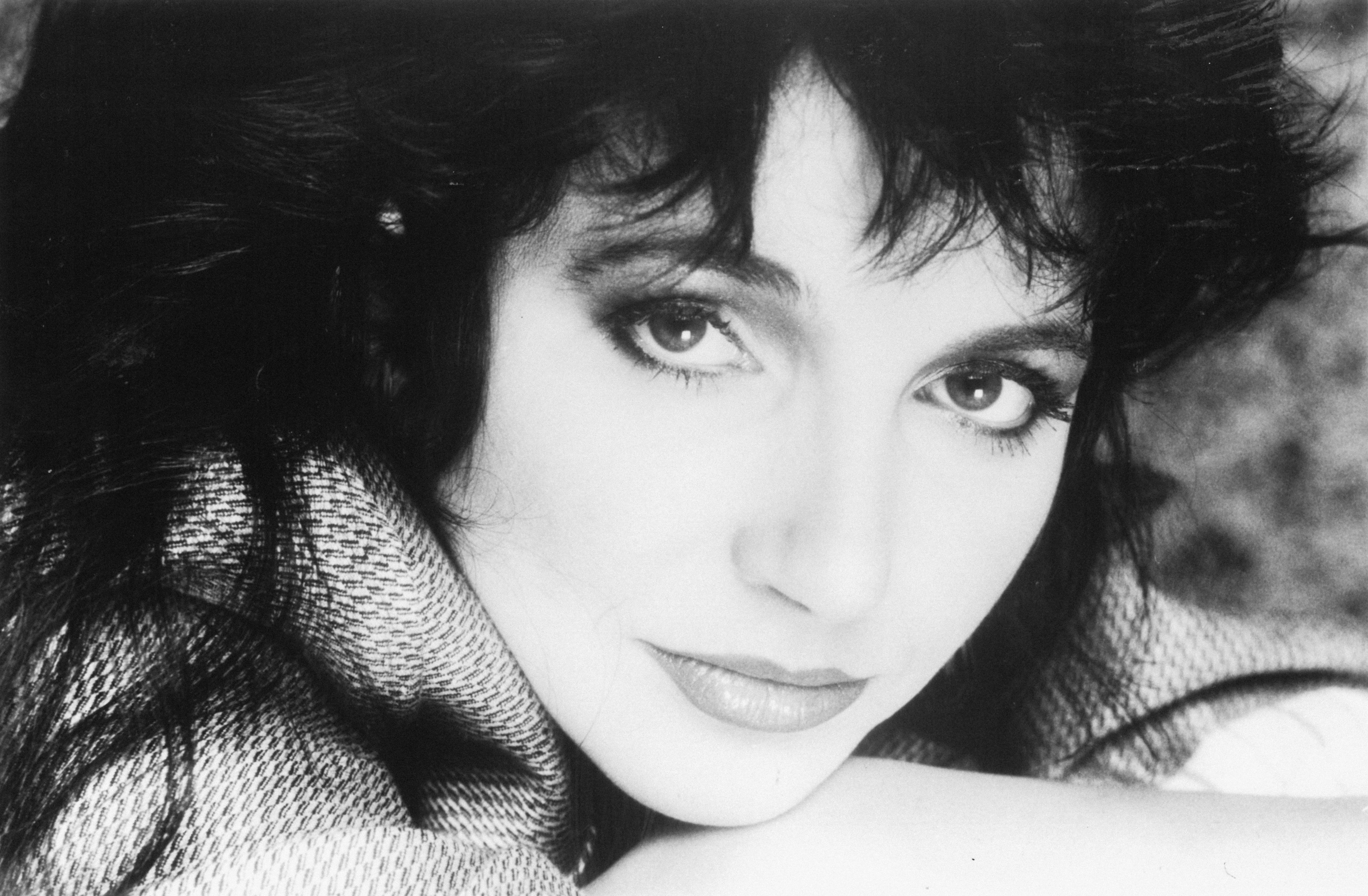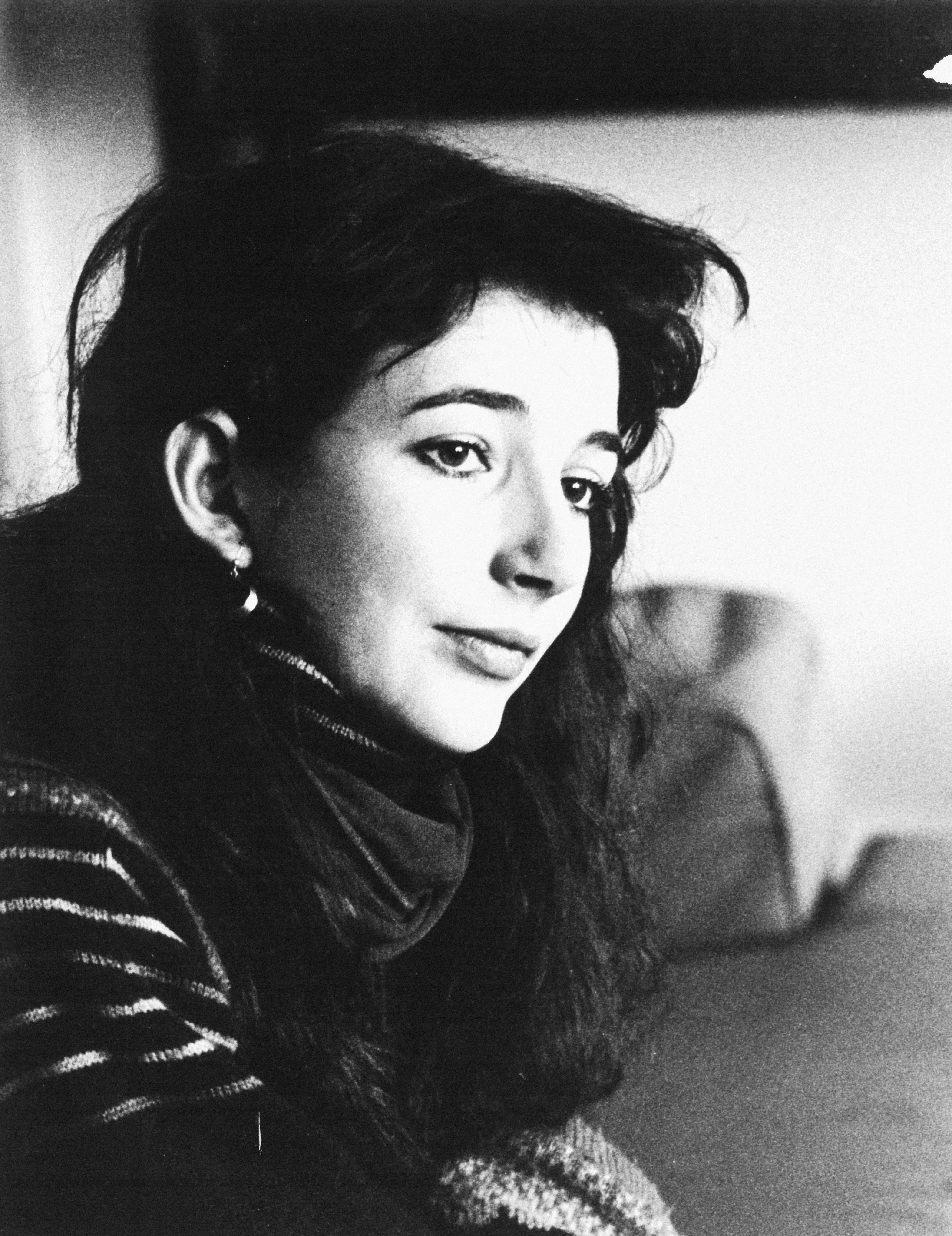Mná na hÉireann (as sung by Kate Bush)
Lyric by Peadar Ó Doirnín, music by Seán Ó Riada

Featuring lyrics originally penned in the 18th century by Ulster poet Peadar Ó Doirnín, ‘Mná na hÉireann’ (which translates from Irish to English as ‘Women of Ireland’) took on new life when set to an air created by composer Seán Ó Riada for a 1969 concert – and has since been covered by a remarkable range of artists, including Sinéad O’Connor, Mike Oldfield, Jeff Beck, Celtic Woman, Sharon Corr and The Chieftains. Perhaps the most extraordinary version of the song, however, was recorded by Kate Bush, for the Donal Lunny-inspired 1996 compilation album, Common Ground: Voices of Modern Irish Music. The English-born Kate, whose mother hails from Waterford in the South of Ireland, joined forces with her past collaborator Dónal Lunny for what is a very special recording. The album ultimately reached No.5 on the Irish Albums Chart. The song ‘Mná na hÉireann’ has achieved iconic status as one of the great Irish-language songs. Performed as Gaeilge, by Kate Bush, it attains an even purer, sonic power
The Story Behind The Song
Seán Ó Riada is widely credited as one of the key figures in the revival of the Irish folk tradition that gathered momentum through the 1960s. A classically trained pianist and composer, he scored two ground-breaking Irish language films, Mise Éire and Saoirse, drawing heavily on Irish traditional airs and framing them orchestrally to achieve a sweeping romantic grandeur. In 1960, he formed the ground-breaking Ceoltóirí Chualann, a group that preceded – and effectively mutated into – The Chieftains. Ó Riada’s ‘Mná na Éireann’ originally featured on the 1971 album, Ó Riada Sa Gaiety, recorded live at a seminal gig in the Gaiety Theatre in Dublin in 1969 – and featuring the tenor Seán Ó Sé and Ceoltóirí Chualann. The air was composed by Ó Riada specially for the occasion, commemorating the bicentenary of the death of Ulster poet Peadar Ó Doirnín, who wrote the original poem on which the song is based. The recording was Ceoltóirí Cualann’s last public performance, and Ó Riada died a year after the album’s release, aged 40.
During the ‘70s, ‘Mná na Éireann’ went on to be recorded by The Chieftains (whose version featured prominently in Stanley Kubrick’s 1975 film Barry Lyndon), as well as American jazz keyboardist Bob James.
Meanwhile, in the UK, following the release of her debut album, The Kick Inside, in 1978, Kate Bush was steadily gaining a reputation as one of the most popular, and exceptional, solo female performers of her generation. Her debut was followed by a series of hit albums – from Lionheart (1978), through Never for Ever (1980), The Dreaming (1982), Hounds of Love (1985) and The Sensual World (1989) to The Red Shoes (1993). Both Hounds Of Love and The Sensual World –the title track of which was inspired by James Joyce’s Ulysses – were partially recorded in Windmill Lane Studios in Dublin. Speaking to Hot Press in 1985, Bush, who has Irish roots through her Waterford-born mother, confirmed of her music that “the Irish influence is definitely very strong.”

Kate Bush, photographed for Hot Press in 1978, by Sandy Harsch
Kate Bush, photographed for Hot Press in 1978, by Sandy Harsch
“I feel that strongly,," she added, "being torn between the Irish and the English blood in me, really. My mother was always playing Irish music, and again, I think when you are really young, things get in – and get in deeper, because you haven’t got as many walls up. It’s the same as my mother – I watch her, and when the pipes start playing, ‘Yahoo!’ You know, everything just lights up and it can be so inspiring. It’s just emotional stuff. I think I was really lucky to be given that kind of stimulus. It’s really heavy, emotionally – the pipes, they really tear it out of your heart.”
In 1985, Kate released a powerful reading of ‘My Lagan Love’ – the classic Irish song penned by Belfast poet Joseph Campbell – as the second b-side track on the 12” version of ‘Cloudbusting’.
After the release of The Red Shoes in 1993, Bush stepped away from the public eye. A few years later, she was approached by Dónal Lunny, with whom she had previously collaborated on several of her studio albums, to contribute to a special project. Lunny is one of Ireland’s most influential musicians – famed for his work as an arranger and a producer, as well as his role variously in the likes of Planxty, The Bothy Band and Moving Hearts. He was helping to curate a new album, Common Ground: Voices of Modern Irish Music and wanted to enlist Bush – a non-Irish speaker – to record ‘Mná na Éireann’ for the project.
Ireland was changing. In December 1990, Mary Robinson had been elected as Ireland’s first female President, confirming that a process of modernisation – and a drive towards equality – was well under way. “As President,” she promised in her inaugural speech, “I will seek to the best of my abilities to promote this growing sense of local participatory democracy, this energising movement of self-development and self-expression which is surfacing more and more at grassroots level. This is the face of modern Ireland.”
In the opening line of that same speech, she had nodded towards O Riada.
“Citizens of Ireland, mná na hÉireann agus fir na hÉireann,” she said, “you have chosen me to represent you and I am humbled by and grateful for your trust. The Ireland I will be representing is a new Ireland, open, tolerant, inclusive.” There was a pause for effect after the phrase “mná na Éireann.” Women, it was clear, would no longer be automatically relegated to second place. And she also spoke warmly about the diaspora – about people like Kate Bush – who were and are entitled to claim Irish citizenship. In a sense, that is what Kate Bush did, when she said a resounding ‘Yes’ to Dónal Lunny. She was reclaiming her Irish-ness.
“She was very excited with the idea of singing the Irish in a way that Irish speakers would understand, and of conveying the meaning of the song through the sounds of the words,” Dónal told Hot Press in 1996. “I helped as much as I could. She had Seán Ó Sé’s recording of ‘Mná na hÉireann’ as reference. She was as faithful to the pronunciations as she could possibly be. Of course you’ll get people saying, ‘Oh, you’d know she doesn’t talk Irish straight off’. You wouldn’t know it straight off. It was with characteristic care and attention that she approached it. She did not stint one bit.”
Kate saw her mother’s hand in the power and the beauty of the final outcome.
“It was fun and very challenging,” Kate said in her own fan newsletter. “I will await comments from all Irish-speaking listeners in particular. I’m sure Ma gave me a helping hand.” Kate’s mother Hannah Bush (née Daly) had died suddenly in 1992.
Common Ground was released by EMI Premier Records in May 1996. The album featured a selection of musicians with Irish ancestry, each performing traditional Irish music, or songs inspired by the Irish tradition. In addition to Bush, the likes of Sinéad O’Connor, Bono & Adam Clayton, Elvis Costello, Christy Moore, Brian Kennedy, Andy Irvine, Liam Ó Maonlaí, Dónal Lunny & Davy Spillane, Paul Brady, Sharon Shannon, Tim & Neil Finn and Moya Brennan contributed to the project – which peaked at No. 5 on the Irish Album Chart.
Bush’s gorgeous reading of ‘Mná Na hÉireann’ went on to feature on her acclaimed 2019 collection of b-sides and rarities, The Other Sides, alongside ‘My Lagan Love’. At the time of its original release, it was praised by Liam Fay in Hot Press as “impressive” – the stand-out track on the LP. Returning to it 25 years on, it seems even more majestic.
As a celebration of her Irish roots, and a reflection of her strong connection to these shores through her collaborations with Irish musicians, ‘Mná Na hÉireann’ is an unforgettable moment in Bush’s remarkable career – and continues to bring other members of the Irish diaspora closer to their ancestral homeland through the power of her voice.
Ending her inaugural speech, President Mary Robinson expressed this wish: “May it be a presidency where I, the President, can sing to you, citizens of Ireland, the joyous refrain of the 14th Century Irish poet as recalled by W. B. Yeats: ‘I am of Ireland… come dance with me in Ireland’.”
Kate Bush did – and we are stronger for it.
